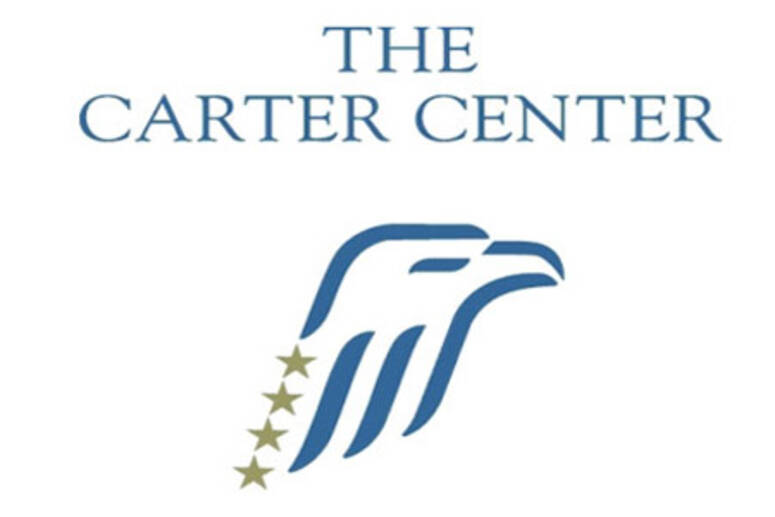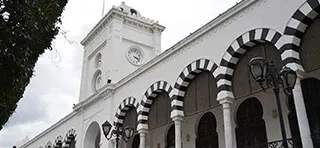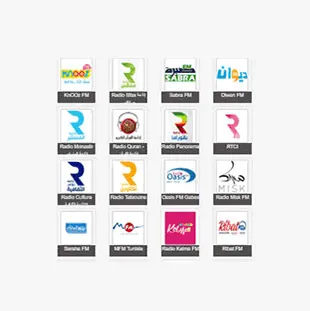Tunisia: Carter Center Encourages Tunisia’s New Leadership to Prioritize Inclusive Approaches to Address Key Political and Economic Challenges

Communiqué de Presse -
In a preliminary statement released today, The Carter Center commended the Tunisian people and its election administration on the successful completion of the 2019 electoral cycle and their deep commitment to the democratic process, which required them to cast ballots in three successive elections in less than a month.
While the environment surrounding the presidential elections was largely open and competitive – there were 26 candidates in the first round and a broadly open campaign environment – the process was undermined by what appeared to be politically motivated actions to detain Nabil Karoui, a leading candidate, during most of the process. The timing of his detention raised legitimate concerns about the right of candidates to enjoy equal opportunities.
Turnout was low in the first two polls but increased substantially for the runoff presidential elections. The presidential race overshadowed the legislative elections, despite parliament’s relative importance over the executive under Tunisia’s new constitution.
The election of a diverse parliament and a new and politically inexperienced president means it is critical for Tunisian political leaders to form a government that can help realize the goals of the revolution and the aspirations of the Tunisian people. Going forward, elected officials must find a way to set aside political and ideological differences for the good of Tunisia and its people. The formation of a Constitutional Court and other independent authorities should be an urgent priority and should be based on a broad political consensus. In addition, parliament and the president should work collaboratively to tackle the economic and political challenges that were the root causes of the 2011 revolution.
The Carter Center’s 80-plus observation mission was led by Salam Fayyad, former Palestinian prime minister. The observer team, which included citizens from more than 30 countries, visited 337 polling stations and all 27 tally centers in Tunisia on election day. Observers reported only minor irregularities in a small number of the polling stations visited.
Today's statement from The Carter Center provides a preliminary assessment, the key findings of which are outlined below. The announcement of final results and the resolution of any complaints or challenges have yet to be completed. As a result, this statement presents the Center’ preliminary assessment but not the final assessment of the electoral process as a whole. The Carter Center may release additional assessments in the post-election period and at its conclusion.
Key Conclusions
Pre-election period: Both of the top two candidates from the first round were perceived as anti-establishment outsiders. Kaïs Saïed is an independent with no political party who ran a non-traditional campaign. Karoui, who co-owns a major media outlet and maintains a charitable organization, created a political party in June 2019 shortly before the elections. He was detained just before the election and remained in detention throughout most of the process, despite concerns raised by the High Independent Authority for Elections (known by its French acronym, ISIE) and most of the political establishment about the impact of his detention on his ability to campaign. He was released on Oct. 9 with only two days left in the presidential campaign period. The issue of equal opportunities between the two candidates dominated the pre-election period and the campaign.
Legal framework: Article 52 of the electoral law guarantees equal opportunities for all candidates during the campaign, though it doesn’t define the meaning of “equal opportunities.” Good practice and interpretative sources state that equal opportunity for parties and candidates should be ensured and that state authorities should adopt a neutral attitude with regard to the election campaign and coverage by the media. Karouin was released on Oct. 9 by order of the Court of Cassation, which concluded that the appeals court had abused its power and violated basic procedural requirements when it ordered Karoui’s pretrial detention. The court declared the detention warrant null and void.
Election administration: The Carter Center commends the ISIE for administering three well-organized elections within a compressed timeline. All three elections were conducted without major flaws, and the ISIE took steps to improve the process between elections.
As the institution responsible for ensuring application of the electoral law, the ISIE took all steps within its authority to ensure that Karoui was given equal opportunity. It repeatedly raised concerns regarding his detention with other government institutions and officials and asked for his release to enable him to campaign. It also approached the prison administration to seek permission for media to have access to Karoui while in detention, which was denied. The ISIE did not have the authority to order his release, nor could it force the judiciary to do so.
Campaign environment: The campaign for the runoff officially began on Oct. 3, the day after the ISIE announced the final results of the first round. The runoff campaigns of both candidates were relatively minimal. Most of the campaigning took place on social media. Karoui was in detention for most of the period, and Saïed pursued a non-traditional campaign. Nonetheless, both presidential candidates were constantly in the news.
Saïed announced that he would not personally campaign because his opponent could not do so from detention, saying that it was the “ethical” thing to do. However, his supporters continued to campaign for him in the field and on social media. In the lead-up to the second round, Carter Center long-term observers reported no large campaign events for either candidate in the regions. However, observers reported that volunteers handed out leaflets and engaged in door-to-door campaigning for both candidates. The supporters of both candidates held final rallies in Tunis on Oct. 11 on Avenue Habib Bourguiba. Although the two groups mixed with each other, there were no altercations reported.
On the last day of the campaign, after Karoui’s release, the two candidates participated in a debate on national TV that covered issues such as defense and national security, foreign policy, the president’s relationship with parliament and the head of government, and public affairs. For each topic, the candidates were asked to respond to three questions. Despite efforts by the moderators to encourage the candidates to interact with each other, they mostly refrained from doing so. The debate, which was viewed by over six million Tunisian viewers and in countries across the Arab world and beyond, was unprecedented in the Arab world.
Electoral dispute resolution: The death of Beji Caïd Essebsi compressed the timeframe of the presidential race, shortening the complaints and appeals process. Because of this, the electoral dispute-resolution process for the presidential elections was marked by lawyers’ complaints that it was impossible to collect enough evidence to prove to the court that any alleged violations had significantly affected the results.
Social media monitoring: The Carter Center monitored Facebook pages supporting and opposing both presidential candidates. Only Nabil Karoui has an official page on Facebook, which he used to promote his campaign. The pages of his political party, Qalb Tounes, and pages that were unaffiliated with the official campaign also supported both the candidate and the party. Although Kaïs Saïed did not have an official Facebook page, his candidacy was supported by multiple unaffiliated pages, to which he denied having any connection. Some of these pages spread rumors regarding his opponent’s efforts to undermine the integrity of the polls. Instances of hate speech were also reported. Karoui’s official page has run paid ads since the first round.
Going forward, parliament should consider how to regulate campaign spending on social media in the interest of increasing transparency and fairness in campaign processes.





















Comments
0 de 0 commentaires pour l'article 191039